The US has operated a sanctions programme targeting the Syrian government since 2004, focused on its association with the financing of terrorism and its historical occupation of Lebanon. Sanctions against the Syrian government and a wide ranging trade embargo were imposed by the EU and SECO in 2012, in response to human rights abuses committed by the government of Bashar Al Assad during the country’s civil war.
Following the fall of Al Assad in December 2024, international sanctions have started easing. As such, in May 2025 the EU Council voted to lift sanctions on Syria and on 1st July 2025 OFAC removed its sanctions on Syria. Both the US and EU have maintained the designations of Bashar al-Assad and certain other destabilising regional actors. The new US programme has been called PAARSS.
On 28th May 2025 the EU Council adopted legal acts lifting all economic restrictive measures on Syria, with the exception of those based on security grounds. In line with its call for accountability and its support to a peaceful transition, the Council extended the listings of individuals and entities linked to the Assad regime until 1st June 2026.
Sanction Name
Restrictive Measures In View Of The Situation In Syria
First Imposed
Last updated
Targets
Asset Freeze, Arms Embargo, Trade Restrictions and Travel Ban:
• Following the fall of al-Assad’s regime in Syria, the Council removed restrictive measures in order to facilitate engagement with the country, its people and businesses in the areas of energy, transport and reconstruction, as well as to facilitate the associated financial and banking transactions.
• Listings related to the al-Assad regime, the chemical weapons sector and illicit drug trade have been maintained.
Exemptions
Exemptions can be granted on a case-by-case basis on humanitarian grounds.
Sanction Name
Restrictive Measures Related To Assassination Of Prime Minister Rafiq Hariri
SANCTIONS
First Imposed
Last updated
Targets
Asset Freeze:
• Individuals – including both Lebanese and Syrian nationals – suspected of involvement in the assassination of Prime Minister Rafiq Hariri.
Exemptions
Exemptions can be granted on a case-by-case basis on humanitarian grounds or to support the attendance of inter-governmental meetings, as well as for basic expenses, the provision of legal and professional services and fees for the holding of frozen funds.
On 13th September 2024, the Swiss Federal Council indefinitely extended the temporary humanitarian exemption introduced after the February 2023 earthquake in Syria.
On 20th June 2025, the Federal Council lifted most of the sectoral measures against Syria, after an initial easing of sanctions on 7th March 2025. The decision was taken to support a peaceful and orderly political transition in the country.
Sanction Name
Order establishing measures against Syria
SANCTIONS
First Imposed
Last updated
Targets
Asset Freeze, Arms Embargo and Trade Restrictions:
• Officials and associates of the Syrian government or any Syrian national deemed to be responsible for the violent repression of the civilian population. The programme includes a ban on the export to Syria of arms or related materiel, or the provision of related financial or technical services, as well as an authorisation scheme for certain chemicals, and prohibitions on equipment used for surveillance purposes. There are also prohibitions on the import, export or sale of cultural property, including objects with archaeological, historical, cultural, religious, or scientific importance.
Exemptions
Exemptions can be granted on a case-by-case basis on humanitarian grounds
On 10th November 2025 the Department of State suspended Caesar Act sanctions based on the actions taken by the Syrian government following the fall of the al-Assad regime. The suspension of Caesar Act sanctions supports Syria’s efforts to rebuild its economy, restore ties with foreign partners, and foster peace.
Sanction Name
Promoting Accountability for Assad and Regional Stabilization Sanctions (“PAARSS”)
SANCTIONS
First Imposed
Last updated
Targets
Asset Freeze:
• Bashar al‑Assad, his associates, and regime officials; human rights abusers; drug traffickers; terrorist affiliates, including ISIS and Al‑Qa’ida, and Iran-linked proxies in the region.
Exemptions
1. General license 25, authorising transactions otherwise prohibited under the former Syria sanctions, remains in effect where necessary.
2. Broader export control waivers (e.g., CBW Act, Syria Accountability Act) were also issued to facilitate humanitarian and commercial engagement, though some may still require department-level consultation.
Sanction Name
Restrictive Measures In View Of The Situation In Syria
SANCTIONS
First Imposed
Last updated
Targets
Asset Freeze, Arms Embargo, Trade Restrictions and Travel Ban:
• Those identified as being responsible for the violent repression of the civilian population in Syria, or supporting or benefitting from the Syrian regime.
• Financial restrictions including in relation to the: sale or purchase of certain bonds issued or guaranteed by the Syrian regime; establishment of correspondent banking relationships with certain persons; and the provision of insurance and re-insurance services to certain persons.
Exemptions
Exemptions can also be granted on a case-by-case basis on humanitarian grounds or for the attendance of inter-governmental meetings.

